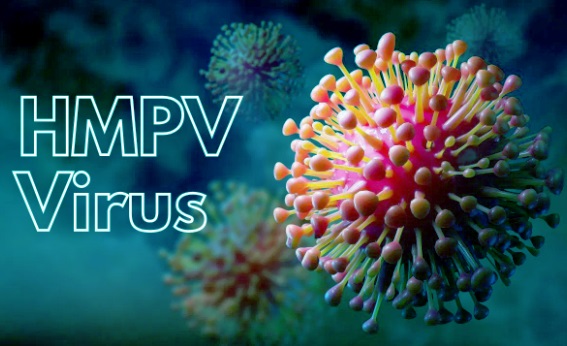Polish Study Finds That Synthetic Sulfonated Derivatives of Poly (Allylamine Hydrochloride) Can Inhibit Human Metapneumovirus (HMPV)
Nikhil Prasad Fact checked by:Thailand Medical News Team Jan 08, 2025 3 months, 5 days, 4 hours, 44 minutes ago
Medical News: A groundbreaking study from researchers at the Jagiellonian University in Krakow, Poland, has revealed that synthetic sulfonated derivatives of poly (allylamine hydrochloride) (NSPAHs) exhibit potent antiviral properties against the human metapneumovirus (hMPV). This pathogen, first identified in 2001 in the Netherlands, is a significant cause of respiratory infections, especially among children, the elderly, and individuals with weakened immune systems.
Human metapneumovirus can lead to a range of illnesses, from mild colds to severe respiratory complications such as pneumonia and bronchitis. Current treatment options are limited, making the discovery of potential inhibitors a vital step forward in the fight against this virus.
 Polish Study Finds That Synthetic Sulfonated Derivatives of Poly (Allylamine Hydrochloride) Can Inhibit Human Metapneumovirus (HMPV)
Polish Study Finds That Synthetic Sulfonated Derivatives of Poly (Allylamine Hydrochloride) Can Inhibit Human Metapneumovirus (HMPV)
This
Medical News report delves into the key findings of the study, providing insights into how NSPAHs can revolutionize treatment approaches for hMPV infections. The research was conducted by scientists from multiple departments at the Jagiellonian University, including the Virogenetics Laboratory of Virology, the Faculty of Chemistry, and the Department of Microbiology.
Understanding the Study and Its Objectives
The primary aim of the study was to investigate the antiviral efficacy of two specific NSPAH derivatives: NSPAH-15-94 and NSPAH-65-96. These compounds were chosen based on their promising preliminary results, which showed effective inhibition of influenza viruses. By extending their research to hMPV, the scientists hoped to identify a broader application for these synthetic compounds.
The study utilized rhesus monkey kidney epithelial cells (LLC-MK2) to assess the impact of NSPAHs on hMPV replication. Two well-known antiviral polysaccharides, iota (ι) and lambda (λ) carrageenans, were included as references to compare the performance of NSPAHs.
Key Findings: NSPAHs as Potent Inhibitors
The results of the study were compelling. NSPAHs demonstrated a dose-dependent inhibition of hMPV replication. Here are the highlights:
-Mechanism of Action: NSPAHs appear to work by blocking the release of progeny virions from infected cells. This prevents the virus from spreading to neighboring cells, effectively containing the infection.
-Comparison with Carrageenans: While carrageenans also inhibited hMPV, NSPAHs showed better physicochemical properties, making them more suitable for high-concentration applications.
-Strain Specificity: The study tested NSPAHs against multiple strains of hMPV, including clades B2 and A1. The compounds were equally effective across these strains, showcasing their broad-spectrum potential.
-Cytotoxicity and Safety: Cell viability assays confirmed
that NSPAHs are non-toxic at effective concentrations. This safety profile further highlights their potential as therapeutic agents.
Experimental Methods
The researchers employed rigorous experimental protocols to validate their findings:
-Replication Inhibition Assays: Cells were treated with NSPAHs throughout the infection cycle, and virus replication was measured using quantitative real-time PCR (qPCR).
-Mechanism of Action Studies: Additional functional assays demonstrated that NSPAHs specifically target the virus’s egress from infected cells without interfering with its entry or replication within host cells.
-Microscopic Analysis: Confocal microscopy revealed a marked reduction in the number of infected cells when treated with NSPAHs, further confirming their efficacy.
Broader Implications of the Study
The implications of this discovery are significant. The ability of NSPAHs to inhibit hMPV - a virus with no current targeted treatments - offers hope for developing effective antiviral drugs. Moreover, their broad-spectrum activity against other viruses, such as influenza, suggests that NSPAHs could be a valuable tool in combating various respiratory infections.
In contrast to natural polysaccharides like carrageenans, NSPAHs’ synthetic origin allows for greater control over their properties. This could lead to the development of more efficient and cost-effective antiviral therapies.
Study Conclusions
The study’s conclusions underscore the potential of NSPAHs as a game-changer in antiviral research. The authors noted: “NSPAHs exhibit strong antiviral properties against hMPV, with comparable efficacy to natural polysaccharides like carrageenans. Their superior physicochemical properties and non-toxic nature position them as promising candidates for further development into therapeutic agents. By targeting the virus release phase, NSPAHs offer a unique mechanism of action that could complement existing antiviral strategies.”
The researchers emphasized the need for additional studies to evaluate NSPAHs’ effectiveness in clinical settings and explore their potential against other viruses. With continued research and development, these compounds could pave the way for innovative treatments that address unmet medical needs.
The study findings were published in the peer-reviewed journal PLOS ONE.
https://journals.plos.org/plosone/article?id=10.1371/journal.pone.0214646
For the latest HMPV News, keep on logging to Thailand
Medical News.
Read Also:
https://www.thailandmedical.news/news/probenecid-shows-promise-against-respiratory-virus-human-metapneumovirus-hmpv
https://www.thailandmedical.news/news/phytochemicals-from-marine-algae-offer-hope-in-combating-hmpv-infections
https://www.thailandmedical.news/news/medical-news-saudia-arabia-study-finds-that-quercetin-inhibits-cytokine-release-and-suppresses-viral-load-in-hmpv-infection
https://www.thailandmedical.news/articles/hmpv-human-metapneumovirus
